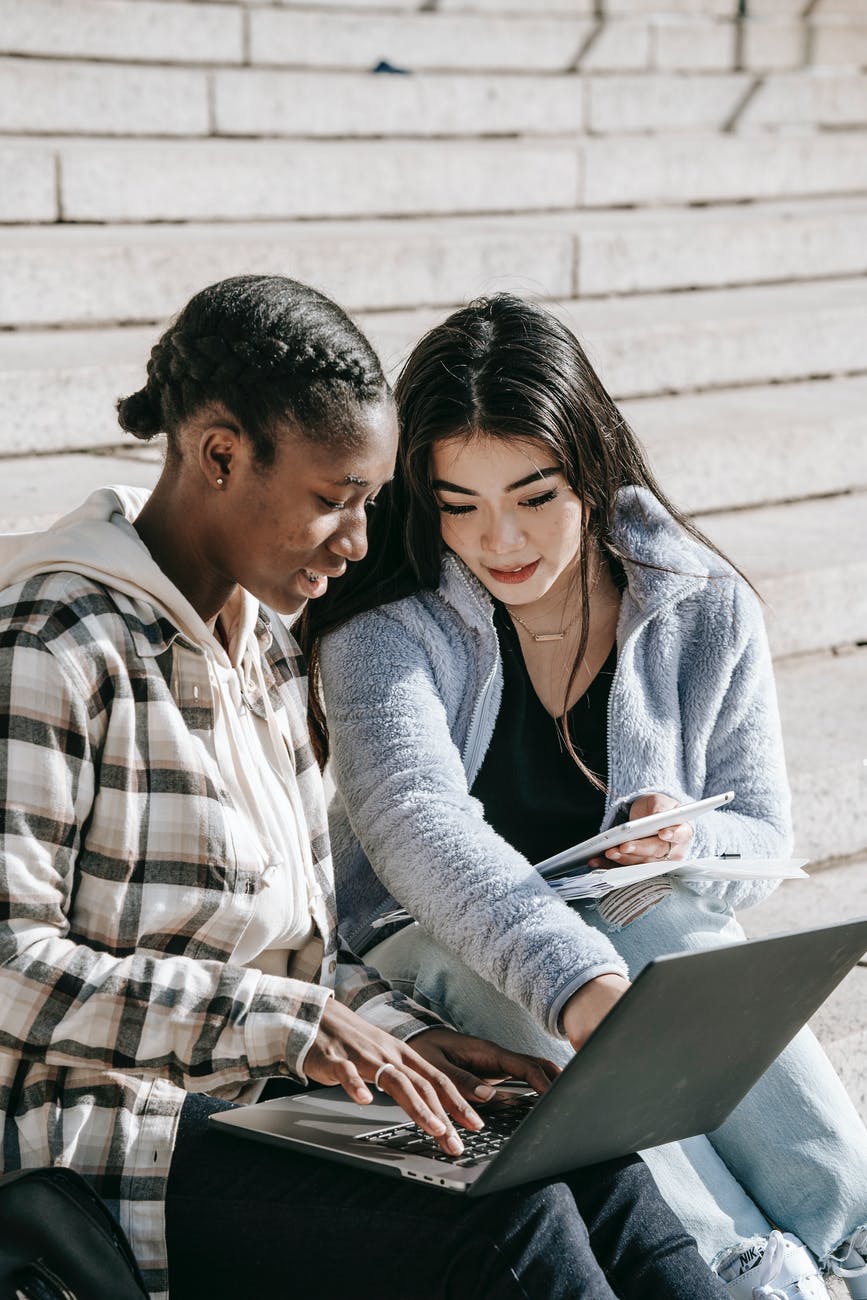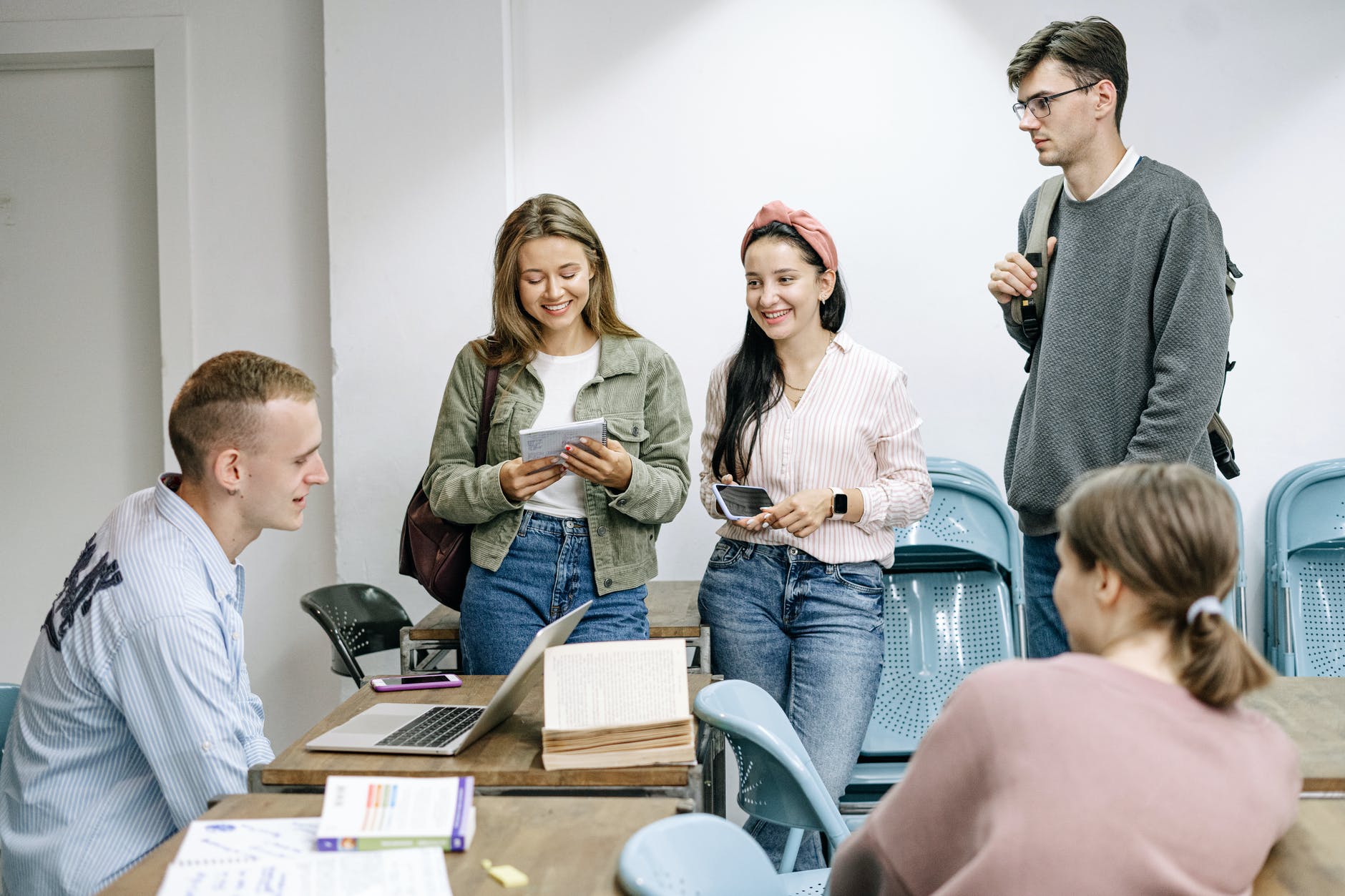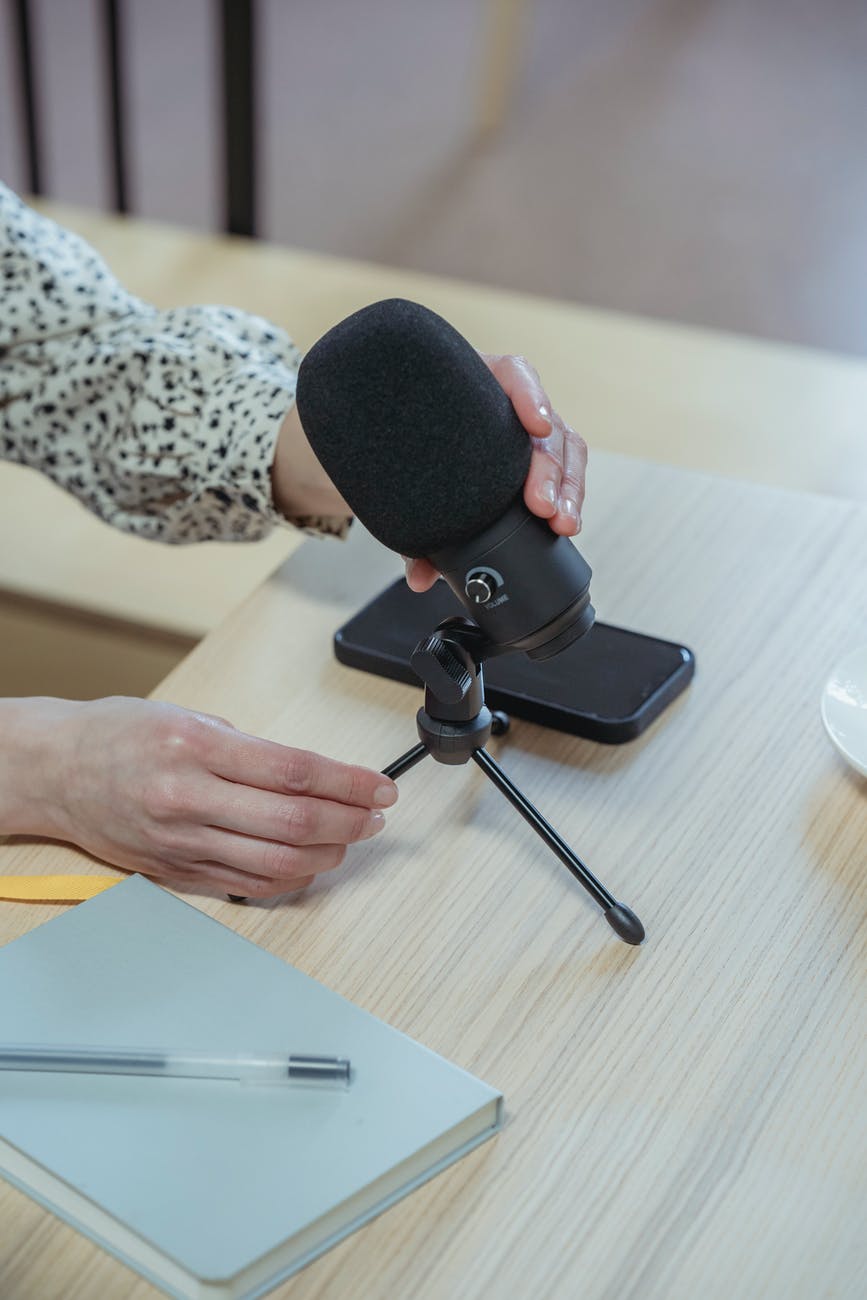Discovering the World of
Open Educational Resources
Understanding Open Educational Resources More

Some of you may recall this, but I wonder what teaching was like before the internet and before sharing resources electronically was really a thing. I know in my internship; I spent a lot of time incorporating technology into a classroom that used it minimally. Sharing resources was always around in the teaching profession I believe, as many teachers are willing to help each other out and learn from one another. Classrooms are communities, but so are schools and colleagues. Making connections is key to building healthy and respectful relationships, but it is also critical for learning, sharing, building skills, and networks, etc. So, the bigger question is, how do we foster that in our classrooms, schools, and with our colleagues?
The quick answer to this very complex question is largely in part to Open Educational Practice. What the heck is this, right? Chances are you have been engaged with this practice in some facet or another without really knowing that you were doing it. To be honest, I had never put much thought into this topic before we talked about it in class the other night. As Alec said, Open Education is the exact opposite of Teachers Pay Teachers (of course, unless the item is being given away free of charge). According to Opensource.com, open educational resources are:
Open educational resources (OERs) are learning materials that can be modified and enhanced because their creators have given others permission to do so. The individuals or organizations that create OERs—which can include materials like presentation slides, podcasts, syllabi, images, lesson plans, lecture videos, maps, worksheets, and even entire textbooks—waive some (if not all) of the copyright associated with their works, typically via legal tools like Creative Commons licenses, so others can freely access, reuse, translate, and modify them.
Opensource.com
To explain this in-depth a little bit further, CCCOER (Community College Consortium for OER) breaks down the parameters of open license and users into 5Rs which were adapted from David Wiley’s article—Defining the “Open” in Open Content and Open Educational Resources:
- Retain—make, control and own copy of that content
- Reuse—use the content as is
- Revise—adapt, adjust, modify, improve, or alter the content
- Remix—combine the original or revised content with other OER to create something new, and,
- Redistribute—share your copies of the original content, revisions or remixes with others
Digging Deeper into the Topic of OER & Potential Impacts
Last class, Alec provided us with at least 9 different videos on Open Educational Resources. Check out all of the links below if you want to learn more about OER, but for the purpose of keeping this blog post a bit shorter than some of my other ones I am going to focus on a few below.
To be completely honest, at first glance I am feeling a bit overwhelmed with the amount of information about OER that I clearly don’t know or wasn’t aware of before. So, getting started on this post was tricky. I knew that I had and currently use OER daily, but I wasn’t really able to explain it well or really understand how I was using it. A very wise teacher once told me to “start at the start, commence at the commencement, begin at the beginning, and so on”. Although that word of advice was super frustrating when learning French as a second language in high school, those words have stuck with me ever since. So, to be fair to the words of advice I receive 100 years ago, I thought I would start with the first video on the list, “Why Open Education Matters”. Within the first few seconds, it grabbed my attention with the statement that “education as we know it is failing millions around the world.” Wow, what a powerful and accurate statement to ponder. Schools all around the world are diverse in a multitude of ways. We can see this even in one school division within Regina, Regina Public Schools. For some schools, we can see it in the buildings the students are housed in without even going inside, for other schools, we can see it within some of the resources they have and the students that are present, and the needs that teachers face on a daily basis. Even with using OER resources, some teachers still pay hundreds, if not thousands of dollars out of their own pockets to help students be successful learners. So that got me thinking about all of the ways that teachers are trying to engage students in their classrooms with old, obsolete, or even non-existent resources, and how to be a successful teacher you need to have a certain level of creativity.

Larry Lessig a Harvard Law professor and for those of you that don’t know is the creator of Creative Commons. Among many TED talks, Laws that Choke Creativity discusses the many different ways that content is owned and shared, “a culture which is top-down, owned, where the vocal cords of the millions have been lost.” Although it was an interesting TED talk with a ton of information, I found myself getting lost in some of it. Although I was trying to single task on watching and listening to the video to find content for my blog, I was easily sidetracked by one of the other videos by Charles Leadbeater in the side pane, called The Era of Open Innovation. Although a bit off-topic, the idea of collaboration and innovation is for everyone and not just professionals was an interesting idea that bridged a lot of the information about OER together for me.
As a teaching community, we rely heavily on each other and our students to keep learning continuous, creative, and engaging for the people around us. Although it can be daunting to plan new units and come up with different ideas, it is also rewarding to succeed as well as learn from what we perceive to be failures. Even though the bike wheel doesn’t have to be reinvented all of the time, it can be adjusted, modified, and changed a bit to make it that much better. I think back to some of my colleagues who teach the same thing year in and out, and fear other teachers in the grades below teaching something that they go over in the next year. Although it may work for those teachers, for me, I am always looking to change things up a bit. Create something new. Have you ever looked back on something you’ve created several years ago and thought to yourself, wow, this is garbage? Or those fonts are repulsive? At the very least, I like to refresh something aesthetically or update information on a unit that is required to teach. So where does that leave us?
Building Communities with OER
Ze Frank does a good job of talking about connectivity and getting people engaged in a “multi-faceted way”. Breaking out of the constraints of what people thought connectivity should look like and move in a way that people can connect with one another and a community while having fun. He also discusses the idea of connectivity isn’t easy, and those building environments where people are connected while having fun and not realizing it is that much more of a bonus. But what does that mean for teachers?

Have you ever been in a school or workplace environment where you know or have felt like you really don’t belong? Or always have someone going out of their way to try to one-up you, or make you look bad? In those situations, I believe fear is a big driver of those behaviours. But imagine if those people were more willing to share their learning, teaching, and resources they have made in the hopes of other people adding to them to enrich them that much more? Instead of having the one-classroom-one-teacher approach, we could work together as a community to help all of the stakeholders be successful. A big part of doing that would be to encourage the sharing of resources and using OER to better our practices that much further.
OER has expanded learning and knowledge throughout the world, giving more access to knowledge than ever before. I often wonder if we took money out of the equation what learning would look like. If knowledge was no longer a choice between eating or paying the bills and learning, what would our world look like? Dean Shareski talks about the importance of sharing in education. Breaking the barriers of learning and closed education. So that got me thinking… we are always preaching to our students about sharing, being kind, working hard, and collaborating. But how do we reciprocate that with our colleagues? How do we break through to teachers that are unwilling to make changes in their teaching practices? Even though I don’t foster the philosophies of forcing people into change or making teachers reinvent the wheel 100% of each school year, I also think it’s important to share knowledge and resources with those that may not be as open to doing so. Anyways, I came across this great article, Sharing Your Best Work with Other Teachers. The article opens up with this statement:
You have much of value to offer your students. You probably also have much of value to offer the teachers at your school. But what if you’re one of those teachers who also have much of value to offer the world of education at large?
Sharing Your Best Work with Other Teachers
If your nodding your head right now or thinking that you’d really like to share more, the article offers 8 different ways to do so:
- Create a TED-ED Lesson,
- Post a video to the teaching channel,
- Upload a lesson plan to the internet,
- Start a blog—or contribute to someone else’s,
- Host a podcast—or contirbut to someone else’s,
- Host a webinare—or contribute to someone else’s,
- Post to Twitter, and,
- Serve remotely on a teacher advisory committee.

When looking over this list, I have a lot of work to do. I thought I was okay at sharing and helping out my colleagues, but I realized that in no way shape, or form have I been going over and above to help out the greater teaching profession. As so many people have commented on the many things that I have been reading, where do we start? How do we start? I think the best place to start is somewhere small. Somewhere that you feel comfortable. If you’re not sharing within your school community yet, try that first. Maybe make a bulletin board with some great tools, resources, lessons, or tricks about a certain topic that you are passionate about. For example, create a bulletin board in the staffroom about a certain math manipulative and how to use it through several different grade ranges. Or a good way to show kindness with crafts, storytelling, etc. There are many ways to start small. Like our last topic of activism, the hardest part is starting. Let the course of nature take you from there. Sometimes remixed songs are better than the original, and lessons plans can be the same.
Some OER Thoughts
Although there are many benefits to OER, I see that there are a lot of limitations as well. I know that everyone has their own reasons for either selling their work or making it open, and I am not swaying one way or the other as I can really see the benefits of both. I have also come across some low-quality OER, as well as paid products too. I think that there are more serious concerns about the lack of equitable access to technology that prohibits OERs from being as successful as they could be. What I do notice, is that I do appreciate that this EC&I831 course uses an OER philosophy, for a couple of fundamental reasons: 1) I appreciate having a multitude of different perspectives from different places around the world, 2) I appreciate the cost savings on a textbook about content that is rapidly changing, and, 3) I like learning about more current information, with older groundwork pieces. I understand that this isn’t a common feeling for everyone, but I do appreciate it in this context.
It’s a HOT Topic! Share Some Spice!
As always, I’d love to hear from you. Feel free to answer all, one, or none of my guiding questions, or leave a general comment. But I do appreciate hearing from you and your ideas, and many times comments left have me pondering about where I could have included that perspective or idea in my blog post, and how I clearly lost focus in another aspect and could have been more clear. So, join in and add some spice to the already hot topic!

- What was the best/worst memory of asking a colleague to share something with you?
- Have you ever felt burned by sharing a resource with a colleague?
- What was the best resource that someone ever shared with you?
- What philosophy do you follow more: OER, TPT or a combination of both?
- If you could change one thing about your sharing practices, what would it be?
- If you feel strongly against sharing, can you shed some light on some of your reasons?
- What was one thing that you thought I missed the mark on in this post, and wish I would have talked about more?
Kelly, great post! I have been very fortunate to work with great colleagues who have been happy to share their resources. When you posted the 5 Rs you had me thinking about a mentor once said to me about using his resources. He was always happy to share but the condition was that he wanted me or others to always send him any revisions or changes that were made to his original documents. He always thought it was cool to see where people would take his resources and constantly added them to his teaching binders. I sound a lot like you in the sense that I am always changing things up or modifying things like format. The idea of adapting, adjusting, modifying, improving, or altering the content is at the heart of what good teaching is all about. We have to be open to change our resources in the hopes that it engages and supports or learners.
What a great idea that is, James! I really like the idea of sharing with people but they have to send revisions over! I once had a pre-intern that was amazing and went to the next level with some of the content that I wasn’t loving. She shared it back with me and I forgot all about it. She’s a wondering and inspiring teacher to me still to this day! I am totally on the same page as you. I want things to continually look or be better than they once were. So key in my books. I also agree that it’s really not a great idea when people take your stuff and use it as their own without giving credit, or else just gift it along and along without the right avenues of asking for permission. I know that has happened to me all too often in my career, and often would be used against me down the road. That’s all a chat for another day, but thanks for stopping in. I really appreciate all of the comments you leave.
I love the ideas for how to share your resources more actively and openly. However, I also agree that the little things count! I know I mentioned positive experiences with sharing in a previous post but one of the worst examples I have seen was a same grade teacher at my previous school. Like you, I was constantly improving on lessons and changing things from year to year. I also committed to revamping and doing an excellent job in at least one area each year. However, I was still not happy with my Social Studies and hadn’t found this to be the priority area yet. One day I discovered the same grade teachers’ resources at the copier. I commended her on them and asked her if I could use it and she said “NO!” Not only that, I realized she had a copyright stamp on all her work. I actually still can’t believe it or understand why some are so unwilling to collaborate and share. We truly are better together! We can make each other better!! Learning about OER has definitely reminded me of how essential that is to the bigger picture of education as a whole!
Oh gosh, Gillian. It sounds like we have had some similar experiences in teaching thus far, and I bet there are many others out there that have also had the same experiences or very similar at the very least. It would be so fantastic if we could all work together, but there are many factors that sometimes get in the way of this teaching philosophy for sure. I know that I have had many successes working together with people, but for some reason, the few bad experiences have stuck with me way longer than all of the great ones. I guess I need to spend more time reflecting on the good experiences rather than the ones that caused heartache or trouble. Thanks so much for sharing. It’s always nice knowing that experiences I may have had, aren’t unique to me lol (even though I don’t wish that upon anyone that’s for sure!).
Thanks Kelly for sharing such a rich and detailed post. I find it very interesting when it comes to the 5 R’s of Open Resources from a story in my first year of teacher. One teacher used another teacher’s resources with their permission, revised it, and then went it sold it on a platform similar to TPT, and made money off it. Needless to say, it caused a lot of tension between the two who were friends before, and started endless drama.
So I really resonate with the 5 R’s to set a framework for how I share my resources, and how others then could share my resources as well.. I like a world where there is less tension and drama around all things sharing.
Thanks for your thoughts, Kelly!
Gosh, isn’t that crazy how so many people have had a similar experience to yours Chris? I too had a situation unfold like that with a few colleagues of mine, and boy was it ugly. I wonder how we can avoid situations such as these? Should there be a note attached to shared items with the terms of use attached? How would that work? Or do you think there could be something better? I know that there are terms of use when you purchase some TPT resources either at the beginning or the end.
Great post, Kelly! I remember in the early years of my teaching career when I asked if I could borrow a lesson from one person and they told me the directions to the teacher store 🙂
I am out on TpT. OER all the way!
Isn’t that funny how those stories stick with you for so long, Curtis? I know I would love to say that I am OER and only going to go that way from now on, it’s tricky for Grade 6 right now. There are a ton of resources for Higher Ed and a lot more American content it seems, but it’s a start.